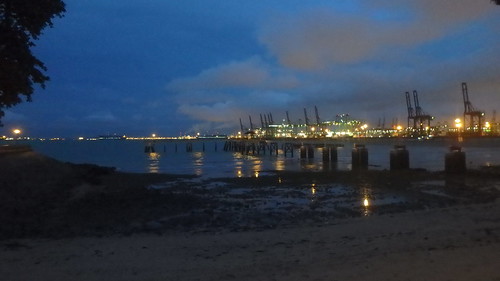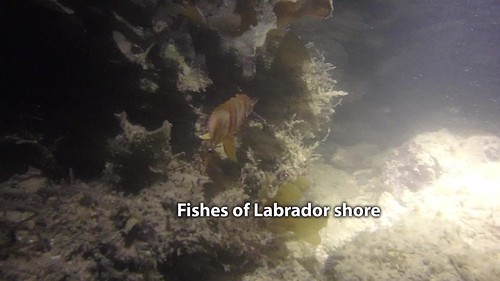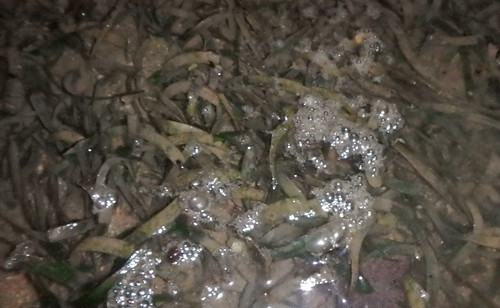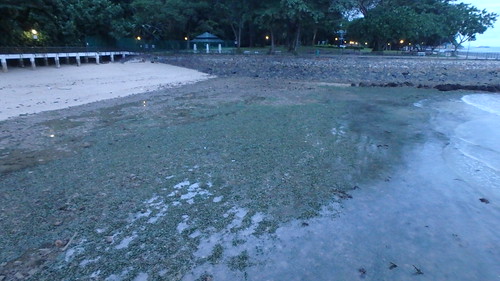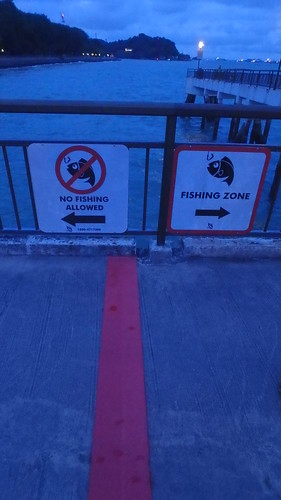We last visited the shore at the height of mass coral bleaching in Jul 2016. It was a relief to see the seagrasses and corals here are alright. Although it was disturbing to see some oil blobs, and it seems many of the large coral colonies did not survive the mass bleaching event.
There were lots of fishes in the water. From lots of tiny fishes, to a butterflyfish and a filefish.
I also saw crabs, a cowrie and many small hermit crabs.
During our last survey here at the height of mass coral bleaching in Jul 2016, there were not many hard corals on the intertidal and most were NOT bleaching. Today, most of the hard corals I saw were small Boulder pore corals. I also saw one small Merulind coral. They were all not bleaching. But from what the rest of the team saw, it appears that the large coral colonies at the reef edge did not survive the mass coral bleaching.
There were also some small colonies Small goniopora corals, and some small Disk corals.
I saw two small but healthy looking Leathery soft corals. There were a few clumps of Button zoanthids, still not as abundant as they used to be in the past. And I saw one healthy Frilly sea anemone.
There were also some sponges of various kinds.
We saw a few blobs of oil floating on the water. There was also oil on plastic trash floating in with the tide.
There was oil scum and the water (and our equipment and clothes) felt oily. But we didn't see any oil blobs washed up on the shore. So it looks like the oil is coming in on the current tide. We have seen this near Pulau Hantu in Apr 2017.
The seagrass meadows between the jetty and the seawall are still lush and dense.
Most of the Tape seagrasses were nice and long. Although we did see some that were cropped short. There were also lush growths of Sickle seagrass closer to the seawall, but less on the western side of the jetty. But these were covered in ephiphytes. There were also patches of Spoon seagrass. While there was an assortment of seaweeds, there was no bloom of seaweeds on the shore.
We did not see any fish nets and there was not much litter. Labrador shore is now permanently closed to the public due to safety issues. Labrador is Singapore's last natural cliff on the mainland. There is work ongoing now to stabilise the cliff. But the jetty is now open, with fishing only allowed at the furthest end of the jetty. More about what you can see and do at Labrador on the NParks website.
Our survey in July 2015 when we noticed that the intertidal has become much sandier. The situation remained the same in Jul 2016 and also today. For years, next to Labrador, there has been massive reclamation, dredging and other coastal works for the new Pasir Panjang Container Terminal. The shore was also impacted by a huge trench dug into it (called a cofferdam) to relocate service pipelines to Pulau Bukom.
 |
| The cofferdam dug into Labrador shore in 2007. |
 |
| These brown corals taken in July 2015 were mostly bleached today. |
It is only through long-term monitoring that we can learn more about what is happening on this shore. Thankfully, NParks is doing just that.
Thanks to NParks for permission to survey and for coming so early to be with us on our trip. Thank you!
Posts by others on this trip
- Jianlin Liu on facebook.
- Jonathan Tan on facebook.
- Loh Kok Sheng on facebook.

